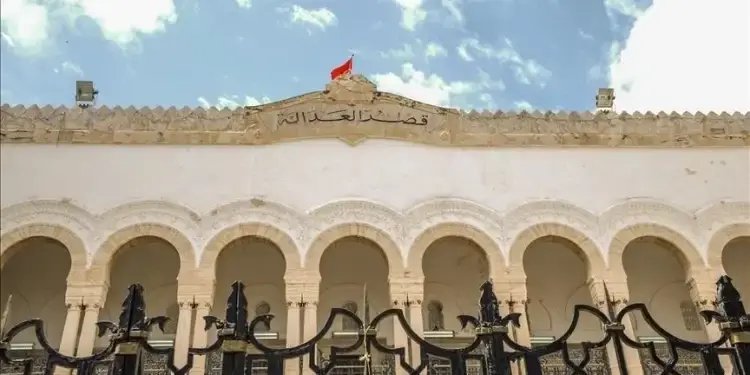The tension was palpable this Friday, April 11, 2025 at the Tunis court of first instance, on the occasion of the second eagerly awaited hearing of the conspiracy against the state security.
This highly sensitive file, which involves around forty political figures, activists and businessmen, continues to crystallize tensions against the backdrop of serious accusations and strong criticism against the conduct of the trial.
A case with deep political ramifications
As soon as the session is opened, the defense lawyers demanded immediate access to the families of the defendants in the courtroom, refusing the camera imposed by the presidency of the court.
Faced with the refusal of the judicial authorities, lawyers chanted slogans in favor of a public and transparent trial. This tense climate forced the judge to temporarily suspend the hearing.
On the outskirts of the court, an impressive security system has been deployed, testifying to the importance of this case in the current political context. Many civil society activists were also present, some sporting signs denounces a political trial.
The case dates back to February 2023, when several public figures were arrested as part of a vast operation carried out by the Tunisian authorities. Among the counts: “Formation of an agreement in order to conspire against the internal and external security of the State” – a liable accusation of heavy penalties under the penal code.
People pursued form an eclectic panel of political opposition and civil society. Among them:
Issam Chebbi, secretary general of the Republican Party,
Ghazi Chaouachi, former minister and lawyer,
Jawhar Ben Mbarek, constitutionalist and political activist,
Abdelhamid Jelassi, former executive of the Ennahdha movement,
SOYED FERJANI, also executive of Ennahdha,
Kamel Letaief, businessman,
Bochra Belhaj Hmida, lawyer and former member.
Notable fact, the French philosopher and essayist Bernard-Henri Lévy is also on the list of accused, although no official precision has been given on the exact nature of his involvement.
At the heart of the controversy: the holding of distance audiences
At the heart of the controversy: the hearing of hearings at a distance, via videoconferencing. The “coordination of families of political prisoners” denounced this decision which it deems attacking the fundamental rights of the accused. In a press release, it called for the live broadcast of audiences on public channels, in order to guarantee what it considers as the basics of a fair trial.
Many NGOs and human rights organizations, national and international, have also expressed their concern, qualifying the situation of “serious judicial drift”. They recall that the right to a public and fair trial is guaranteed both by the Tunisian Constitution and by international treaties ratified by Tunisia.
The presidency of the court, for its part, invoked reasons of national security to justify the holding of remote trials. It is based in particular on article 73 of the law on the fight against terrorism and money laundering, as well as article 141 bis of the code of criminal procedure, which authorize the visioconference hearings in the event of “real danger”.
The next hearing, the date of which remains to be confirmed after Friday suspension, promises to be just as tense.








